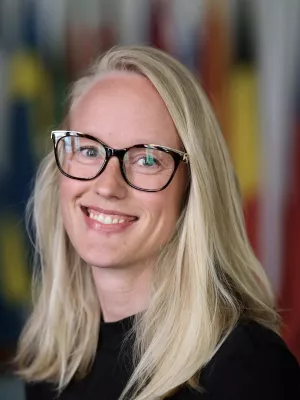
Sofie Sandin Lompar
Postdoctoral fellow

Evaluating for a Sustainability Transition
Author
Other contributions
- Frans Libertson
Summary, in English
All kinds of public policies are being proposed to address our climate and sustainability challenges, for example, emission standards, substance bans, aviation taxes, energy efficiency labels, and even communication campaigns. However, global carbon dioxide emissions keep going up! Are these policies working? Under what circumstance? And, at what cost to other systems in society? To answer these questions, we need policy evaluations to learn, to adapt, and to hold governments and organisations accountable to meet our sustainability goals. In this episode, we discuss policy evaluation for a sustainability transition, and how evaluators (and citizens) can think more holistically and integrate learnings across public policies. This is the second episode as part of a trilogy, highlighting the contributions of graduating PhD students at the IIIEE. We are joined by PhD Student Sofie Sandin, co-founder and previous co-host of the podcast! She defends her doctoral thesis on transformative policy evaluations in May. Sofie is also joined by Per Mickwitz, the previous director of the IIIEE, and currently the Pro-Vice Chancellor of Research, Sustainability, and Campus Development at Lund University.
Department/s
- University Management
- The International Institute for Industrial Environmental Economics
Publishing year
2021-04-26
Language
English
Links
Document type
Other
Publisher
International Institute for Industrial Environmental Economics, Lund University
Topic
- Environmental Engineering
- Other Social Sciences
Status
Published

